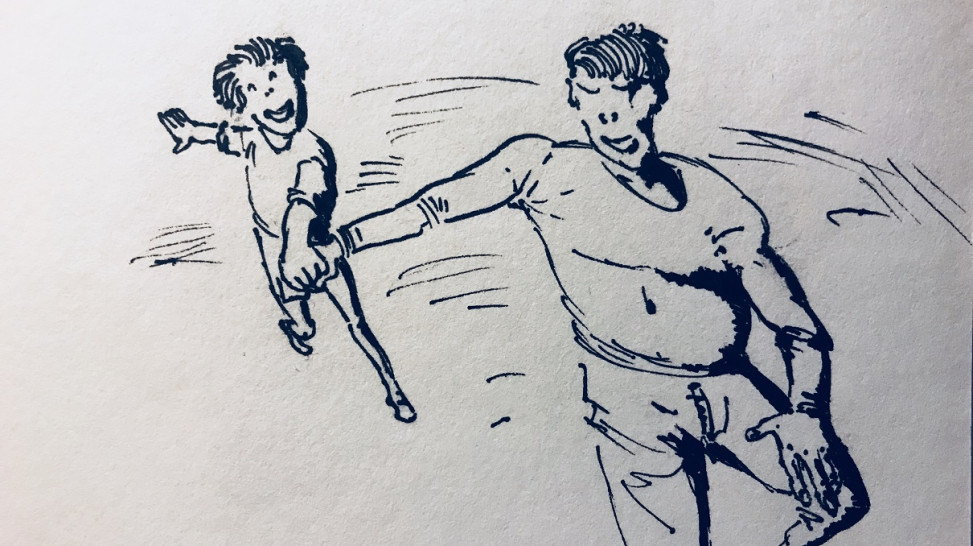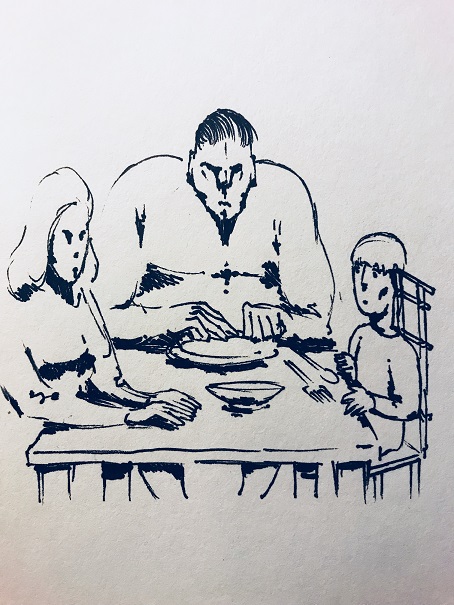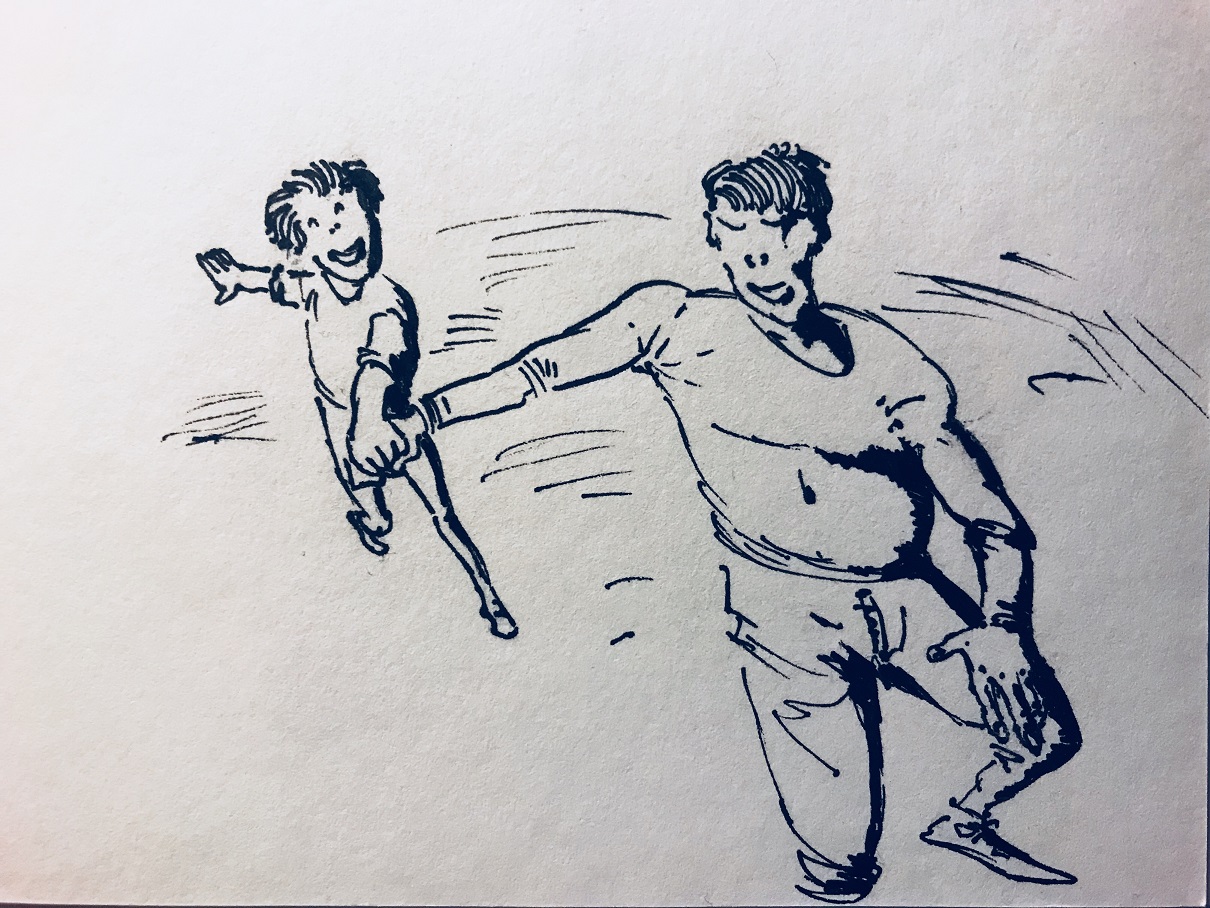 Love That Resulted in Brutal Murder and Broken Lives
Love That Resulted in Brutal Murder and Broken Lives
By Rana Aghayeva
 Shahriyar Mammadov has been working as a criminal journalist at Azerbaijan’s APA News Agency for more than 10 years.
Shahriyar Mammadov has been working as a criminal journalist at Azerbaijan’s APA News Agency for more than 10 years.
Ten years ago, on February 4, 2008, his father, 41-year-old Rahman Mammadov brutally murdered his 40-year-old mother Haqiqat Mammadova in a fit of unreasonable jealousy. He stripped her naked so that she could not run away and ask for help, poured hot water on her, stabbed her 56 times and poked her one eye out.
In court, Rahman Mammadov admitted his guilt, and said he did not know why he committed the murder. He claimed to have mental problems and said he needed psychological help, but it was not proven in court.
He said that he was sorry and loved his family. He was sentenced to 14 years in prison. He is scheduled to be released in four years.
At the time of the murder, Shahriyar Mammadov, (who uses the name Alizade professionally), was 20 years old. His brother Nijat was 19.
Shahriyar says his parents were once deeply in love. Rahman Mammadov and Haqiqat Mammadova studied at the same secondary school in Aghdam region.
There they fell in love with each other and got married. Haqiqat Mammadova was working at her uncle’s drugstore before she got married. After marriage, her husband did not allow her to work, and she did not object.
According to Shahriyar, his family was very peaceful and did not have many arguments. “But my father was an extremely jealous man," he says today.
"All the fights within the family were related to his jealousy. He was so jealous that when he went to work, he put a tiny stick on the door handle to make sure that nobody opened the door after he left.”
He said his father loved his mother -- even though he was irrationally jealous and treated her like his possession. He was jealous of even family members:
“When they were going somewhere by car, my father told my mother to sit in the back seat. She never went anywhere by herself. She was so isolated that she used to tell me that when she was in the street, she thought that everyone was coming at her.”
Both his father and mother were quiet people.
“Despite his attitude towards my mother, my father never raised his hand against me and my brother, but I argued with him when he treated my mother violently,” Shahriyar says.
According to Shahriyar, his father’s behavior worsened all of a sudden: “He began to act in a weird way. My mother used to wear jeans at home.
Once, my father came home and asked whose trousers they were.
My mother replied that they were hers and that he had bought them.
But he said that he had never bought such trousers and argued with her. He told her to take them off and never wear them again.
"When I was at home, he did not dare to lay his hands on her, but when I wasn't home, he beat her up.”
Shahriyar started worrying about the mental health of his father.
At the time, his father was working on the night shift at an aluminum factory in the Bilajari settlement of Baku.
“After his psychological state got worse, he left his job at the factory," Shahriyar says.
"As a matter of fact, we suggested to him to leave his job. We said if you are jealous of your wife, then quit your job and stay next to her to make sure.
Anyway, he had never been fond of working.
"He started spending more time at home. But his behavior became even worse. He became more violent. Before going to sleep, he tied her hand to his so that she could not run away. Once he beat her so that she had a dark circle under her eye. When I came home and saw that, I confronted him, and we had a fight. But my mother said that she had fallen down.”
Even though Shahriyar advised his mother not to hide the truth, she refused because she was scared that nobody would believe her.
According to Shahriyar, his father’s family also had psychological problems, including extreme jealousy.
His uncles were also irrationally possessive of their wives, but none of them were as violent as his father.
At the time, Shahriyar was already working as a criminal journalist, and he witnessed such cases in courts.
He tried to warn his mother and told her to get divorced. His brother disagreed.
She said that if she got divorced at her age, everybody would suspect her of cheating on her husband.
He still feels angry with his mother that she did not listen to him and get the divorce.
“I was very worried about the mental health of my father, and suggested my mother put him into a mental hospital, but she refused, claiming that if she did that, nobody would want to give their daughters to me and my brother,” Shahriyar says.
“On that infamous day, my mother hugged me tightly when I was leaving for work. It was like she felt her death.”
Shahriyar says he has been able to get over his mother’s death, but that his brother Nijat, who was very attached to her and saw her dead body, still cannot get over it.
“I still have nightmares at night. I see my mother in my dreams. I hate my father.
I promised many years ago that when he is released from prison, I will kill him,” says Nijat, who is married and working.
“He called me and said to come home straight away," Shahriyar remembers.
"I said that I was in court working. I guessed that something bad had happened, and yet I felt somehow relaxed. I thought maybe my father had injured my mother, and he would be arrested. By that time, I was so fed up with the entire situation. I knew that one day something would happen.”
His mother’s relatives and father's relatives do not communicate with one another. His father’s relatives still visit him in jail.
Shahriyar says that after his mother’s death, he wanted to sell the house she had been killed in.
He changed his mind because his aunt lived nearby and he wanted to be close to his family.
When his younger brother got married, he built a house for him on the same plot.
According to Shahriyar’s brother, they have not communicated with their father since their mother’s death.

Several years ago, Rahman Mammadov wrote a letter to his elder son Shahriyar apologizing for his cruel deeds.
In the letter, he wrote that he was deeply sorry and asked his son to forgive him.
“You have lost your mother. I am your father. You should not lose me either. Forgive me,” Shahriyar cites the letter.
According to Shahriyar, his brother and he will never be able to forgive their father.
“What he did is unforgivable, but sometimes, I feel sorry for my father, because he really loved us. I think he was not sane while committing the murder,” says Shahriyar.
As for Shahriyar, he says he is happily married.
“I tell my wife to get a job and socialize with other people. I do not want her to just sit at home and take care of our children. I have a six-year-old daughter. I know that if she makes a mistake in her personal life or separates from her husband, I will always support her. I will never let my children down. I will support them no matter what,” Shahriyar concludes his story.